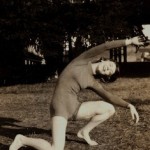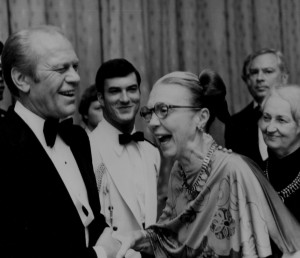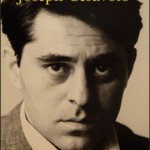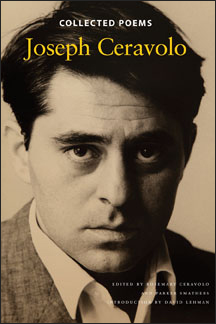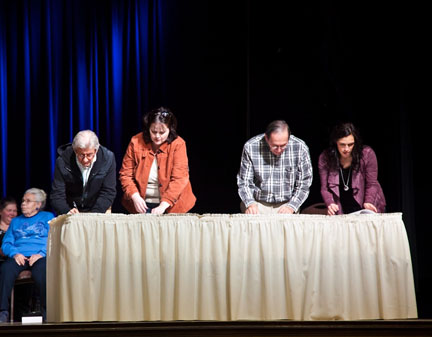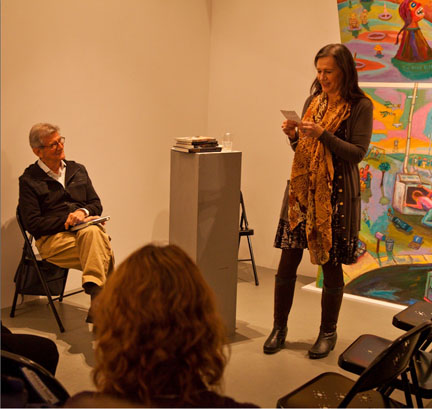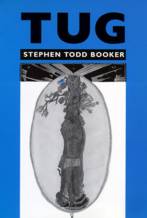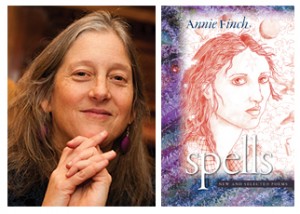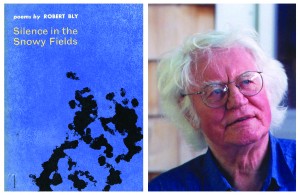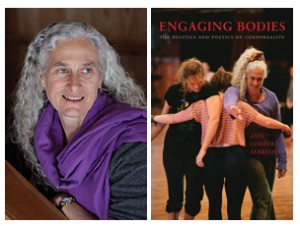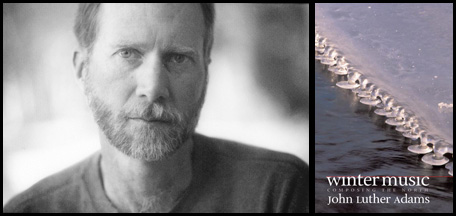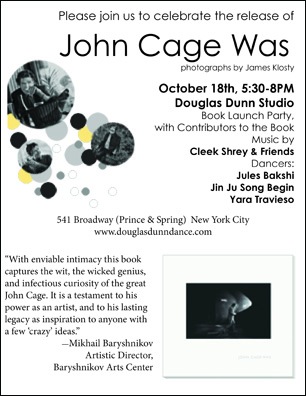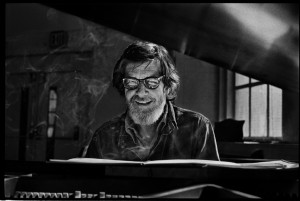Something for everyone on your list!!!
Order from UPNE.com using discount code W301 to receive a 30% discount.
For History Readers
|
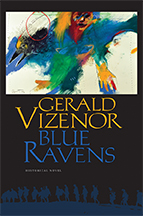 |
Blue Ravens
by Gerald Vizenor
$27.95 Hardcover
978-0-8195-7416-9
From one of today’s most important Native American writers, this “emotionally wrought and finely crafted” (ForeWord) novel follows two Anishinaabe brothers from the battlefields of World War I, to their home on the White Earth Reservation, to the streets of post-war Paris. The book is based on his great uncle’s stories, as well as extensive research. |
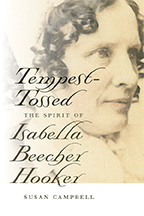 |
Tempest-Tossed:
The Spirit of Isabella Beecher Hooker
by Susan Campbell
$28.95 Hardcover
978-0-8195-7340-7
The youngest child of one of America’s most famous families, a mover and shaker with a wild streak, Isabella Beecher Hooker is remembered in this engaging, breezy biography. Pulitzer-winning author Susan Campbell combines the research skills of a “born historian” (Connecticut Explored) with a breezy, accessible style. |
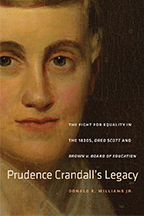 |
Prudence Crandall’s Legacy:
The Fight for Equality in the 1830s, Dred Scott, and Brown v. Board of Education
by Donald E. Williams, Jr.
$35.00 Hardcover
978-0-8195-7470-1
In 1833, despite public backlash, Prudence Crandall admitted a black girl to her private school, resulting in the first integrated classroom in the country. Former CT state senator Donald E. Williams Jr. details Crandall’s life and work, and her unique role in the fight for civil rights, including her battles in the court system and the legacy of these battles, which include Brown v. Board of Education, the civil rights movement, and the problems and progress we see today. |
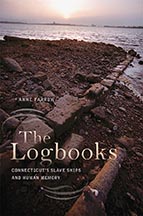 |
The Logbooks:
Connecticut’s Slave Ships and Human Memory
by Anne Farrow
$27.95 Hardcover
978-0-8195-7305-6
Anne Farrow, co-author of the bestselling Complicity: How the North Promoted, Prolonged, and Profited from Slavery, takes readers on a harrowing journey onto the slave ship of a Connecticut merchant via the journal of that merchant’s son, bearing witness to our most shameful forgotten history. |
For Film & Theater Buffs
|
|
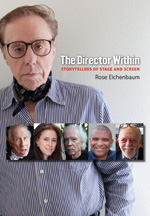 |
The Director Within:
Storytellers of Stage and Screen
by Rose Eichenbaum
$30.00 Hardcover
978-0-8195-7289-9
Thirty-five masterminds of film, television, and theater—the directors of such productions as The Lion King, Chicago, and Rain Man–open up to Rose Eichenbaum about the entertainment industry, the role of the director, and how their work impacts our culture and lives. |
For Poetry Readers
|
|
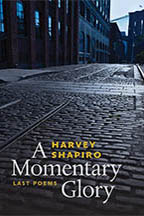 |
A Momentary Glory:
Last Poems
by Harvey Shapiro
$24.95 Hardcover
978-0-8195-7489-3
Acclaimed poet Harvey Shapiro “plays for keeps” (Hugh Seidman) in this posthumous collection. With his signature brilliance he reflects on war and eroticism, illness and aging, love and death, all in search of a worldly wisdom and grace that the poet calls “a momentary glory.” |
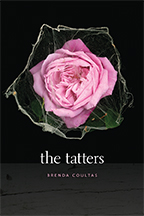 |
The Tatters
by Brenda Coultas
$22.95 Hardcover
978-0-8195-7419-0
Brenda Coultas turns her keen eye to everyday objects—a pigeon feather, a discarded piece of jewelry—to make sense of the landfill we humans have made of our world. “These poems,” wrote The Kenyon Review, “cataloguing and owning and turning from and grappling with our vast trash, are trouble in the most useful sense of the word.” |
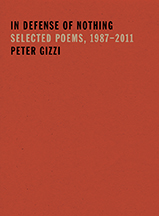 |
In Defense of Nothing:
Selected Poems, 1987-2011
by Peter Gizzi
$26.95 Hardcover
978-0-8195-7430-5
Bookslut calls Peter Gizzi “a major force in the ever-expanding vastness of the poetry world.” In this landmark collection, representing over twenty years of work, Gizzi cements that reputation, enlisting the very American vernacular in a magical and complex music all his own. |
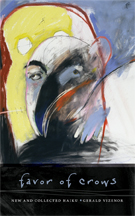 |
Favor of Crows:
New and Collected Haiku
by Gerald Vizenor
$24.95 Hardcover
978-0-8195-7432-9
Gerald Vizenor unites the imagistic poise of haiku with the early dream songs of the Anishinaabe people in this stunning new collection, in which ordinary moments “come to shimmering life on the page” (David G. Lanoue, president of the Haiku Society of America). |
For Music Lovers
|
|
|
|
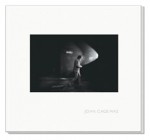 |
John Cage Was
by James Klosty
$55.00 Hardcover
978-0-8195-7504-3
A lavish 12 x11″ art book with a textured hardcover, velum wrap, and over 170 stunning duotone photographs of the great composer at work and at play, combined with eclectic remembrances of Cage from figures like John Ashbery, Yoko Ono, and Stephen Sondheim. This book a memorial to treasure. |
|
|
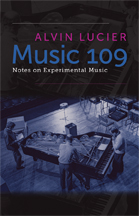 |
Music 109:
Notes on Experimental Music
by Alvin Lucier
$19.95 Paperback
978-0-8195-7492-3
Composer and performer Alvin Lucier brings clarity to the world of experimental music as he takes the reader through more than a hundred groundbreaking musical works, including those of Robert Ashley, John Cage, Charles Ives, Morton Feldman, Philip Glass, Pauline Oliveros, Steve Reich, Christian Wolff, and La Monte Young. No previous musical knowledge is required, only a love of music. |
|
|
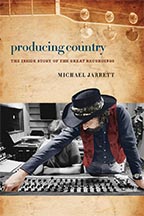 |
Producing Country:
The Inside Story of the Great Recordings
by Michael Jarrett
$27.95 Paperback
978-0-8195-7464-0
In what Music Tomes calls “one of the best oral histories of country music to come around for quite some time,” Michael Jarrett interviews the producers behind the most iconic country recordings of Elvis, Hank Williams, Johnny Cash, Dolly Parton, and more—revealing how producers have shaped our music and our tastes over the decades. |
|
|
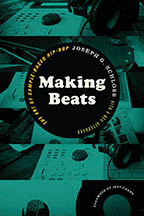 |
Making Beats:
The Art of Sample-Based Hip-Hop
by Joseph G. Schloss
$24.95 Paperback
978-0-8195-7481-7
Schloss examines the way hip-hop artists have managed to create a form of expression that reflects their creative aspirations, moral beliefs, political values, and cultural realities. This second edition of the book includes a new foreword by Jeff Chang and a new afterword by the author. |
|
|
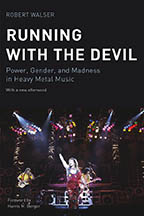 |
Running with the Devil:
Power, Gender, and Madness
in Heavy Metal
by Robert Walser
$22.95 Paperback
978-0-8195-7514-2
Dismissed by critics and academics, condemned by parents and politicians, and fervently embraced by legions of fans, heavy metal music continues to attract and embody cultural and societal conflicts. Walser explores how and why heavy metal works, both musically and socially, and investigates the genre’s formations of identity, community, gender, and power. This edition includes a new foreword by Harris M. Berger and a new afterword by the author. |
|
|
